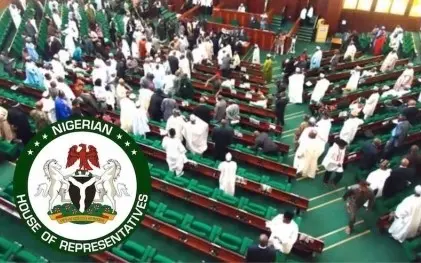
The House of Representatives has taken a proactive stance on the issue of wages in Nigeria, advocating for the payment of living wages that align with current economic realities globally.
In a resolution passed on Wednesday, March 6, the House directed relevant committees to develop modalities for implementing living wages for Nigerian workers, with rates that reflect the economic conditions of the country.
The motion, spearheaded by the Minority Leader of the House, Kingsley China, and supported by 37 other members, highlighted the pressing need to address the rising inflation rate in Nigeria.
Deputy Minority Leader Aliyu Sani Madaki emphasized the detrimental impact of inflation on the cost of living, making it increasingly difficult for average Nigerians to afford basic necessities such as food, shelter, education, and healthcare.
Madaki cited international standards, including the United Nations Universal Declaration of Human Rights, which recognizes the right to just and favorable remuneration for all workers.
He also underscored the importance of living wages in achieving the Sustainable Development Goals (SDGs), with eight out of 17 goals directly linked to adequate remuneration.
Despite recent adjustments to the minimum wage by the federal government, Madaki highlighted the disparity between wages and the cost of living, particularly following the removal of fuel subsidies.
He referenced reports estimating the living wage for individuals and families in Nigeria, emphasizing the need for wages to reflect these figures to ensure dignified living standards.
Moreover, Madaki raised concerns about the World Bank’s report on the country’s low purchasing power, which has exacerbated poverty levels across Nigeria.
He echoed sentiments expressed by the Speaker of the House in 2023, emphasizing that only living wages can address underlying issues such as insecurity and corruption.
The House’s resolution underscores the urgency of the situation and the need for immediate action to improve the economic well-being of Nigerians.
Failure to address these issues, Madaki warned, could lead to further economic downturn and increased hardship for the population.





